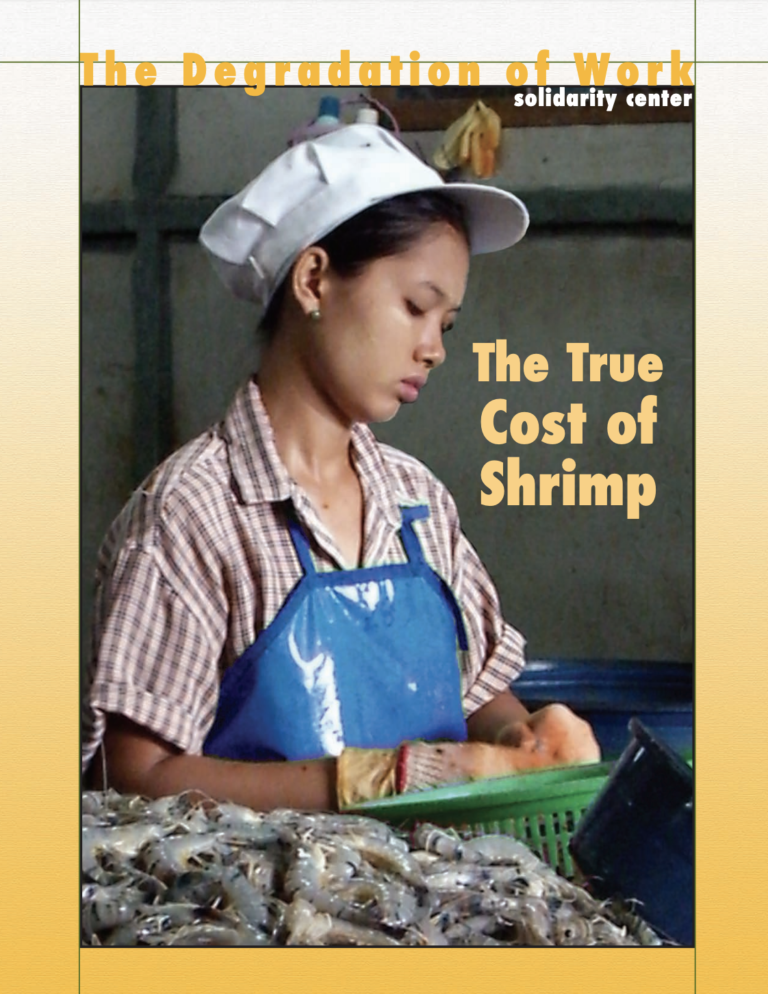As in any modern industry, technology has revolutionized the production and distribution of seafood. Today, highly perishable products, once caught solely in the wild, can be farmed, processed, packed, and shipped to destinations worldwide in a matter of days. One of the most lucrative of those products is shrimp. In little more than 30 years, the shrimp industry has been revolutionized through an unprecedented increase in efficient production, resulting in tremendous profitability for producers. However, the “shrimp boom” is sustained through a staggering, largely hidden, cost to workers, their families, and the environment. Not for the first time, the drive to make a product for the world market quickly and cheaply leaves a trail of abuse, misery, and damaged lives. The true cost of shrimp is not what is seen on a supermarket price tag or a restaurant menu.
Bangladesh and Thailand are both major locales for shrimp production and processing. The Solidarity Center focuses on these two countries in this report. In both, companies use the lack of labour rights and weak labour law enforcement to exploit shrimp processing workers. Yet, it is these workers who make the shrimp industry profitable.
Solidarity Center staff and local allied organizations laboured diligently to document concerns about the lack of corporate social responsibility within the shrimp industry. Research uncovered prevalent labor rights and human rights violations — unpaid wages, unsafe and unhealthy workplaces, and the harsh physical mistreatment of workers. Child labour, forced labour, physical intimidation, and sexual abuse of shrimp industry workers are also carefully documented.

